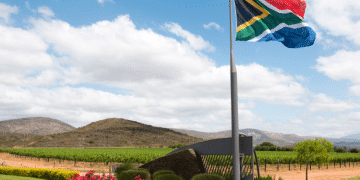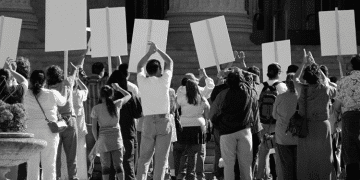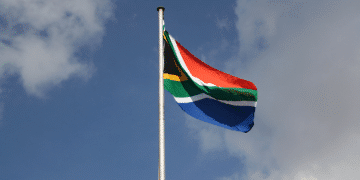Complete Guide: 12 Official Public Holidays in South Africa and Their Historical Significance
Introduction to South African Public Holidays
South Africa recognizes 12 official public holidays annually, each with its specific significance and observances.
These holidays were established by the Public Holidays Act (Act No 36 of 1994).
Overview of the Public Holidays Act (Act No 36 of 1994)
The Public Holidays Act formalizes the observance of public holidays in South Africa.
According to the Act, if any public holiday falls on a Sunday, the following Monday will be considered a public holiday.
This provision ensures that the public does not lose out on their holiday off.
Explanation of the 12 Official Public Holidays Recognized Annually
South Africa’s official public holidays include:
- New Year’s Day (January 1)
- Human Rights Day (March 21)
- Good Friday (date varies annually)
- Family Day (Date varies annually, follows Easter Sunday)
- Freedom Day (April 27)
- Workers’ Day (May 1)
- Youth Day (June 16)
- National Women’s Day (August 9)
- Heritage Day (September 24)
- Day of Reconciliation (December 16)
- Christmas Day (December 25)
- Day of Goodwill (December 26)
Rules Regarding Holidays Falling on Sundays
This rule ensures that individuals are still able to enjoy a public holiday even if the original date is not a weekday.
Public holidays play a crucial role in the social and cultural fabric of South Africa, helping to honor its history and promote national unity.
The timing and celebration of these holidays reflect both religious and historical aspects that are essential to the country’s diverse population.

New Year and Early Year Celebrations
New Year’s Day (January 1)
New Year’s Day marks the beginning of the calendar year and kicks off the sequence of public holidays in South Africa.
It is a day filled with joy, celebration, and the hope of new beginnings. It’s a time to reflect on the past year and set resolutions for the future.
Human Rights Day (March 21) and the Sharpeville Massacre Connection
On this day, police opened fire on peaceful protesters challenging the apartheid pass laws, resulting in 69 deaths and 180 injuries.
This massacre was a pivotal moment in South Africa’s human rights history, leading to increased international condemnation of the apartheid regime.
Human Rights Day serves as a reminder of the country’s struggle for freedom and the importance of preserving and promoting human rights for all citizens.
Easter Holidays (Good Friday and Family Day) and Their Ecclesiastical Determination
Easter is a significant period in the South African calendar, celebrated with two public holidays: Good Friday and Family Day.
The dates of these holidays vary each year, as they are determined by the ecclesiastical moon—falling sometime between late March and late April.
Easter serves as both a religious observance and a time for familial connection and relaxation.
These early year celebrations provide South Africans with a blend of joyous festivities and solemn remembrance, setting a tone of unity and reflection that continues to resonate throughout the rest of the year.
Freedom and Workers’ Commemorations
Freedom Day (April 27)
Freedom Day, celebrated on April 27, marks one of the most significant dates in South African history.
On this day in 1994, South Africans participated in the country’s first democratic elections, which were open to all citizens regardless of race.
This historic event signaled the end of apartheid and the beginning of a new era of freedom and equality.
South Africans from all walks of life came together to vote, many for the first time, in a moment of profound national unity and optimism.
This holiday is a reminder of the long struggle for democracy and the sacrifices made by countless individuals who fought against the oppressive apartheid regime.
Festivities on Freedom Day often include parades, political speeches, and cultural events, all aimed at celebrating the nation’s journey towards achieving democracy and remembering the resilience of its people.
Workers’ Day (May 1)
Workers’ Day, celebrated on May 1, is known internationally as Labor Day and honors the contributions of workers and the labor movement.
In South Africa, this day holds particular significance as the country has a long history of labor organizing and activism, which played a crucial role in the fight against apartheid.
Workers’ Day is an opportunity to recognize the efforts of trade unions and workers who fought for fair labor practices, better working conditions, and social justice.
Events held on this day typically include marches, rallies, and speeches by labor leaders.
It’s a day for celebrating the achievements of the working class and advocating for continued improvements in labor rights and conditions.
Importance in Post-Apartheid South Africa
Both Freedom Day and Workers’ Day are vital in the context of post-apartheid South Africa.
These holidays not only commemorate significant milestones in the nation’s history but also serve as a reminder of the ongoing efforts needed to build a more equitable society.
They provide an opportunity for reflection on the progress made since the end of apartheid and the challenges that still lie ahead.
These observances help foster a sense of national identity and unity, essential for the country’s continued growth and development.
Youth and Women’s Recognition
Youth Day (June 16) and the 1976 Soweto Uprising
Youth Day, observed on June 16, holds a deep significance in South African history.
On this day, thousands of students from Soweto marched in protest against the mandatory use of Afrikaans in schools, which they saw as a tool of oppression by the apartheid regime.
The protest quickly escalated, and the police responded with brutal force, leading to the deaths of hundreds of young people.
The Soweto Uprising wasn’t just about language;
it became a powerful symbol of resistance against apartheid and the entire Bantu Education system, which provided substandard education to Black South Africans.
The courage and sacrifice of the students ignited further resistance across the country and eventually contributed to the fall of apartheid.
National Women’s Day (August 9) and the 1956 Women’s March Against Pass Laws
National Women’s Day, celebrated on August 9, honors the incredible bravery and determination of women who participated in a historic march in 1956.
Led by notable figures such as Lilian Ngoyi and Helen Joseph, the marchers left thousands of petitions at the prime minister’s office and stood in silent protest for 30 minutes.
Their courageous stand against the oppressive laws is remembered as a significant milestone in the fight for gender equality and civil rights in South Africa.
Honoring Historical Struggles for Equality
Both Youth Day and National Women’s Day play crucial roles in honoring South Africa’s historical struggles for equality.
These holidays are not just about remembering past events but also about recognizing the ongoing fight against injustice.
They serve as annual reminders of the resilience, courage, and contributions of the youth and women who played vital roles in the nation’s journey towards freedom and equality.
Cultural and Reconciliation Celebrations
Heritage Day
Heritage Day, celebrated on September 24, is a day for South Africans to honor and embrace their diverse cultural heritage.
Instituted in 1996, it recognizes various aspects of South African culture, including creative expression, historical inheritance, language, cuisine, and the natural environment.
As former President Nelson Mandela noted, the holiday underscores the importance of acknowledging the nation’s past struggles and cultural diversity to build a unified national identity.
Heritage Day activities often include cultural performances, exhibitions, and family gatherings where traditional foods are prepared and enjoyed.
These events foster pride in the nation’s rich cultural tapestry and promote social cohesion.
The government designates a theme each year to guide the celebrations, further highlighting the importance of cultural heritage in nation-building.
Day of Reconciliation
The Day of Reconciliation, observed on December 16, aims to promote unity and reconciliation in South Africa.
Originally known as the Day of the Vow, it commemorated the 1838 Battle of Blood River, where the Voortrekkers defeated the Zulu forces.
During the apartheid era, it held significant meaning for Afrikaners but also symbolized a history of division and conflict.
With the advent of democracy, the holiday was redefined to focus on healing and fostering a united South Africa.
The transformation of this day into one that encourages reconciliation illustrates the country’s commitment to moving beyond its painful past.
The holiday now features events that bring together people from various backgrounds, highlighting the ongoing journey towards a cohesive national identity.
Celebrations on the Day of Reconciliation include public speeches, community service activities, and cultural festivals that underscore the shared values and common goals of the South African people.
By reflecting on historical conflicts and the progress made, the nation continues to build a foundation for lasting peace and unity.
Moving forward, these cultural and reconciliation celebrations serve as vital reminders of South Africa’s journey and commitment to honor its diverse heritage and foster a united society.
Year-End Festivities
Christmas Day (December 25) Celebrations in South African Context
Christmas Day is celebrated with much enthusiasm in South Africa.
Families come together to share a festive meal, exchange gifts, and reflect on the year’s blessings.
The celebration is marked by a blend of local and international traditions, including brightly decorated Christmas trees, carol singing, and midnight church services.
In addition, many South Africans enjoy barbecues, called “braais“, taking advantage of the Southern Hemisphere’s summer weather.
Day of Goodwill (December 26) and Its Significance
The Day of Goodwill, celebrated on December 26, is a continuation of the festive spirit of Christmas. It provides an opportunity for relaxation and goodwill towards others.
Originally known as Boxing Day, this holiday has been rebranded in South Africa to emphasize the importance of kindness and community.
Many people use this day to spend time with family, participate in charitable activities, or simply unwind after the Christmas celebrations.
The Importance of These Holidays in Bringing Families Together
Both Christmas Day and the Day of Goodwill play a crucial role in strengthening family bonds in South Africa.
These holidays offer a designated time for families to gather, share experiences, and create lasting memories.
They also provide a moment for reflection and gratitude, reinforcing the values of love, generosity, and community that are central to South African culture.
These year-end festivities not only mark the culmination of the year but also pave the way for a renewed sense of unity and hope for the future.
| Scenario | Before | After (Modern Observance) |
|---|---|---|
| 🇿🇦 National Identity | Limited recognition of shared history | Public holidays serve as reminders of the country’s journey to unity and democracy |
| 🗓 Holiday Celebrations | Solemn ceremonies and official events | Vibrant community celebrations and cultural expressions, like Heritage Day |
| 🌍 Cultural Unity | Limited focus on cultural diversity | Public holidays promote cultural understanding and unity, like Heritage Day and Day of Reconciliation |
| 🏛 Reconciliation | Focus on historical divisions | Public holidays foster reconciliation by acknowledging past struggles and celebrating unity |





